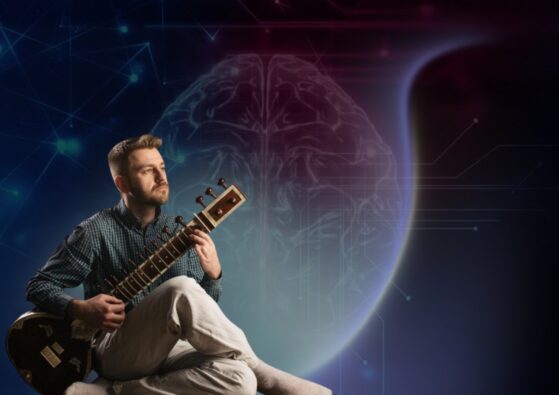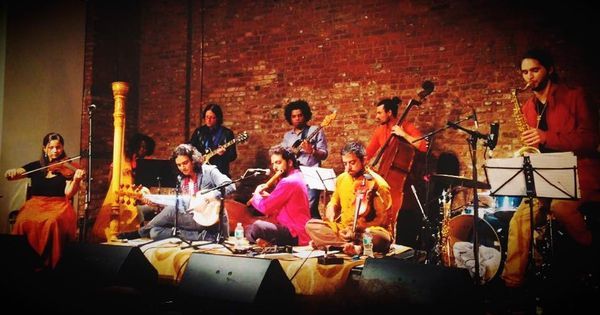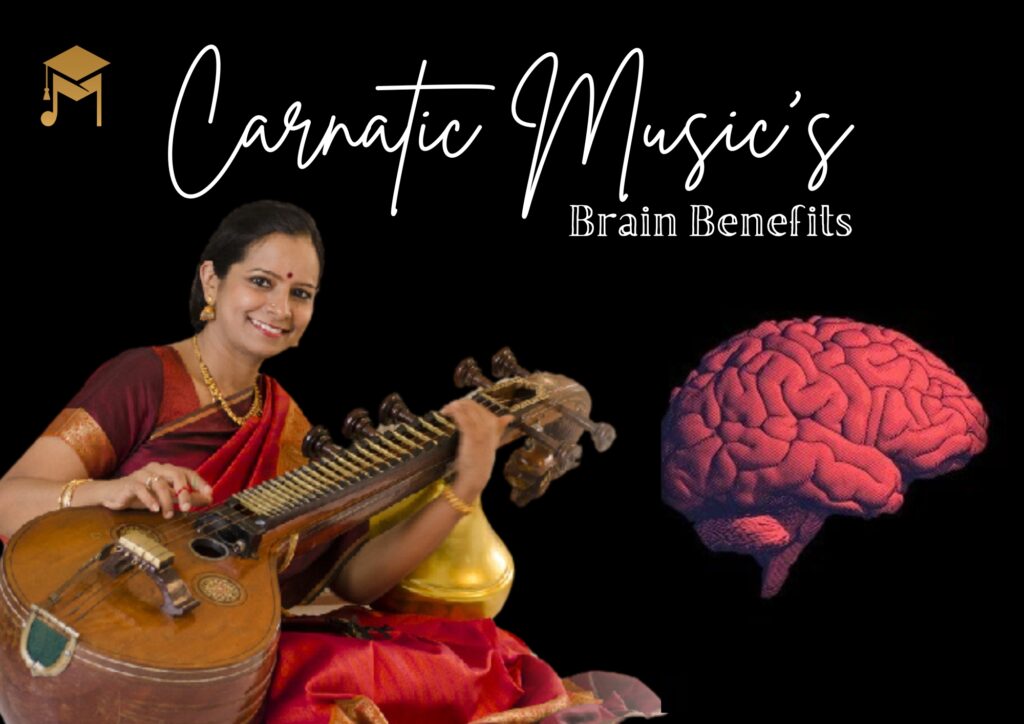Carnatic Music Benefits | How it Affects the Brain
Carnatic music, one of the oldest forms of classical music in India, has a profound impact on the human brain. Rooted in ancient traditions and intricate patterns, it is not just an auditory delight but also a powerful tool that influences cognitive functions, emotions, and overall mental well-being. This blog delves into the scientific aspects of Carnatic music and its benefits for the brain, providing an insight into why this traditional art form holds such significant value.

The Structure and Complexity of Carnatic Music
Carnatic music is characterized by its intricate melodic patterns (ragas) and rhythmic cycles (talas). Each raga is designed to evoke specific emotions and mental states. The complexity of Carnatic music lies in its detailed improvisation and the use of microtones (srutis), which are finer subdivisions of the standard semitone. This level of complexity requires a high degree of cognitive processing and active listening, engaging multiple areas of the brain.

Cognitive Enhancement
Listening to and practicing Carnatic music can significantly enhance cognitive functions. Studies have shown that musical training can improve memory, attention, and executive functions. The act of learning and performing Carnatic music involves:
- Memory: Memorizing complex compositions and improvisational patterns strengthens both short-term and long-term memory.
- Attention: The need to follow intricate rhythmic cycles and melodic progressions enhances concentration and attention to detail.
- Executive Function: Planning and executing a performance involves high-level cognitive processes, including problem-solving and multitasking.

Emotional Regulation
Carnatic music has a unique capability to evoke and regulate emotions. The specific ragas are known to influence mood and emotional states. For example, Raga Anandabhairavi is often associated with calming and soothing effects, while Raga Hamsadhwani is known for its uplifting and joyous influence. This emotional resonance is linked to the brain’s limbic system, which is responsible for processing emotions. Listening to certain ragas can activate neural pathways that help in stress reduction and emotional balance.

Neuroplasticity and Brain Health
Engaging with Carnatic music can promote neuroplasticity, the brain’s ability to reorganize itself by forming new neural connections. This is particularly beneficial in:
- Children: Musical training in childhood can enhance brain development and improve language skills, spatial reasoning, and fine motor skills.
- Adults: For adults, learning and practicing Carnatic music can maintain cognitive flexibility and delay age-related cognitive decline.
- Therapeutic Uses: Carnatic music therapy is increasingly being used for patients with neurological disorders such as Alzheimer’s disease, Parkinson’s disease, and stroke rehabilitation, aiding in improving motor functions and cognitive recovery.

Social and Cultural Connectivity
Carnatic music fosters a sense of community and cultural identity. Group performances and learning environments create social bonds, enhancing social cohesion and collective emotional well-being. This communal aspect of music-making activates brain areas associated with social interaction and empathy, such as the mirror neuron system.

The Science of Sound and Vibration
The fundamental element of Carnatic music is sound (nada) and its vibrational quality. Sound waves have a direct impact on the brain’s electrical activity. The frequencies and rhythms in Carnatic music can synchronize brainwaves, promoting states of relaxation or heightened awareness. Research in psychoacoustics has shown that certain musical intervals and rhythms can influence physiological responses, such as heart rate and respiration, aligning with the therapeutic aspects of Carnatic music.

Conclusion
The intricate and richly layered tradition of Carnatic music offers more than just artistic expression; it is a profound science that impacts the brain in multifaceted ways. From cognitive enhancement and emotional regulation to promoting neuroplasticity and social connectivity, the benefits of Carnatic music are far-reaching. Embracing this ancient art form not only enriches our cultural heritage but also nurtures our mental and emotional health, showcasing the timeless wisdom embedded in its melodies and rhythms. By understanding and exploring the scientific foundations of Carnatic music, we can appreciate its role in fostering holistic well-being and continue to propagate its invaluable legacy for future generations.
For more information and exciting resources about learning music, visit our website at The Mystic Keys. For more music content and exciting offers follow us on








